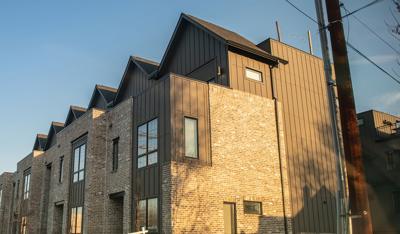Street View is a monthly column taking a close look at development-related issues affecting different neighborhoods throughout the city.
In late 2022, real estate agent Brittania Nosworthy sold a house in Madison for $343,000 to Daniel Hernandez, an investor from Illinois. Hernandez had bought the property to rent on Airbnb and applied for a short-term rental permit in December 2022.
But there was one problem: The house wasn’t zoned for non-owner-occupied short-term rentals. So in 2023, after Hernandez had allegedly spent $69,000 on furniture and $35,000 on improvements for the property, his permit was denied. He sold the property in March 2023 for $360,000. In February of this year, he filed a civil lawsuit against Nosworthy and her previous employer, Parks Village Nashville LLC. Hernandez’s suit alleges that Nosworthy should have realized — and disclosed — that the home’s zoning didn’t allow Airbnb.
Hernandez’s case is an example of what Nashville’s short-term rental code is now designed to block: an out-of-state investor operating a short-term rental in a residential area. His house had come up against a piece of legislation that has changed the makeup of Nashville neighborhoods and their relationship to short-term rentals like Airbnb and VRBO.
In 2018, the Metro Council voted to phase out non-owner-occupied short-term rentals in residential neighborhoods. As of Jan. 1, 2022, no new non-owner-occupied permits were issued in residentially zoned areas. But as reporter Hannah Herner wrote for our sister publication the Nashville Post in October 2023, this doesn’t mean the number of short-term rentals has decreased as quickly as some residents would like. Metro law stipulates that once a short-term rental property in a residential zone changes hands, the permit can’t be renewed; however, many owners can still hold onto properties for a long time.
Nosworthy tells the Scene she wasn’t aware of the zoning changes impacting Hernandez’s property; the listing happened a few months after Metro’s legislation took effect, and the local homeowners’ association had approved the property for Airbnb. When she found out Hernandez was suing her, she reached out to her broker. “[The broker] said, ‘Wow, you’re the third one in the office,’” says Nosworthy. “I guess a lot of agents weren’t aware of the transition.”
Nosworthy says she’s seen fewer investors looking for short-term rental properties since the restrictions took effect; some clients have shifted to long-term rentals instead.
The majority of short-term rental properties are owned by investors who do little to enforce codes and standards
Nashville’s short-term rental market has grown explosively over the past decade. In 2015, Councilmember At-Large Burkley Allen (then a district councilmember) told WPLN that Nashville had 1,500 Airbnbs. In November 2022, the Scene reported that the city had 7,733. As of this writing, data-aggregating site insideairbnb.com estimates that Nashville has 8,850; 86.7 percent of Nashville’s current Airbnb stock (7,673 listings) are short-term rentals with a minimum required stay of less than 30 days, and 3,702 are held by hosts who own more than 10 properties. Some investors, like Goodnight and Host Extraordinaires, own hundreds of Nashville Airbnbs. While Metro’s legislation has slowed the growth of short-term rentals in some residential neighborhoods, their numbers are increasing overall.
Residential neighborhoods have also raised complaints about short-term rentals. A Street View story from 2022 chronicled the woes of residents witnessing shootings, late-night parties, safety concerns and noise. One group told the Scene that a “party house” in their residentially zoned neighborhood was secretly run by an out-of-state investor. These complaints have been happening for years; Metro Codes still hears complaints about noise and illegally operated rentals, though the latter can be difficult to prosecute.
Short-term rental restrictions, combined with distance to Lower Broadway and other local attractions, have meant that short-term rentals are largely clustered in particular areas — mostly in and around Nashville’s downtown core. At the time of writing, more than half of Nashville’s Airbnbs are in just four of the city’s 35 council districts.
But in District 9, where Hernandez attempted to obtain a permit for an Airbnb, there are only 44 listings — 0.5 percent of Nashville’s overall stock. By comparison, District 19 (in Nashville’s downtown core) currently has 2,068 listings. Districts 17 and 21 both have around 1,000 each; East Nashville’s District 5, where the Scene previously reported on short-term rental safety concerns, has 879.
So has Metro’s legislation changed where short-term rentals are in the city? It’s a difficult question to answer in detail. It has certainly blocked some investors from purchasing properties in residential areas. Amid fierce debate over zoning and density and Nashville’s pressing shortage of affordable housing, these restrictions feel important. But with more than 1,000 new Airbnb listings in the past year-and-a-half, the zoning rules haven’t necessarily slowed short-term rental growth everywhere.
Nosworthy says she’s staying away from selling short-term rental investment properties for the foreseeable future. But she also wants to be transparent, and says she agreed to an interview for this story so other people can learn from her mistakes. “The more that people know the better,” she says. “I’m not about hiding anything. So if I do something and it’s caused some sort of action, I’m all about educating people.”
Representatives for Daniel Hernandez declined to comment on the case.






